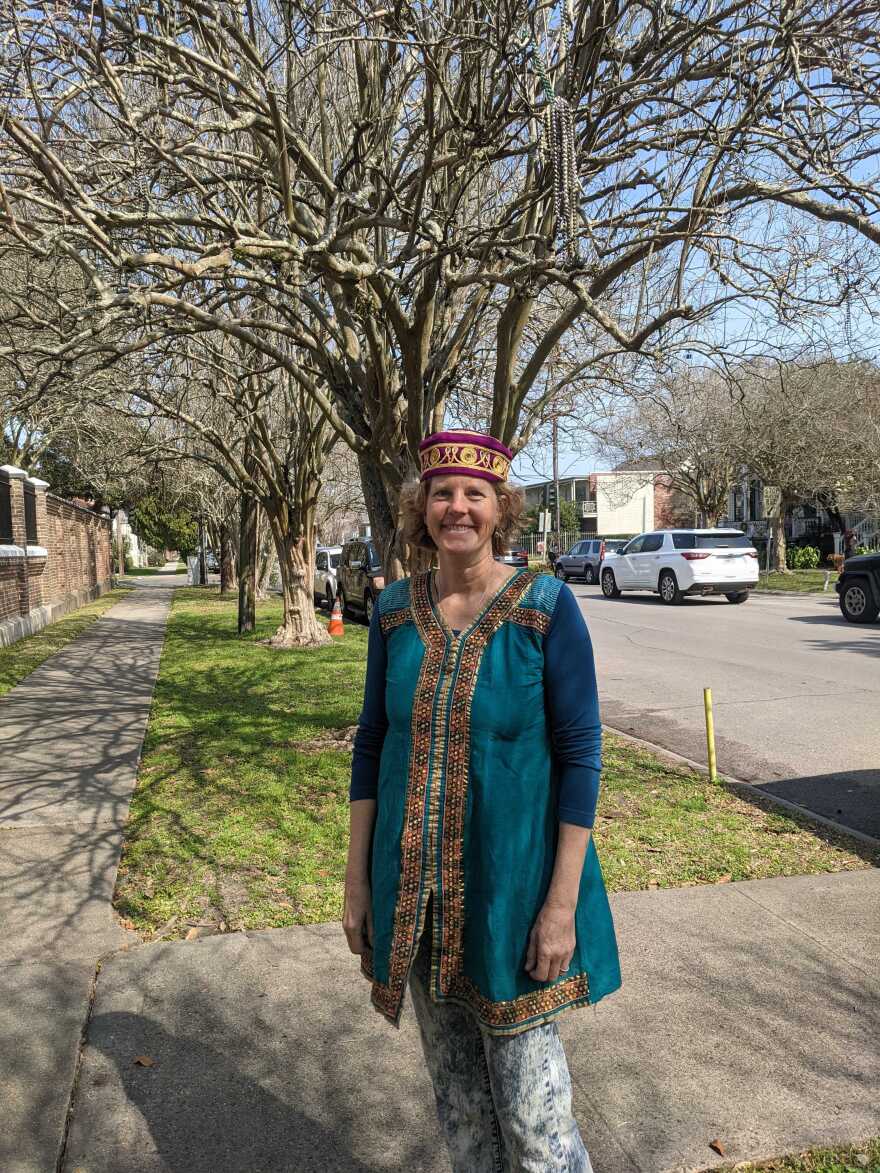After Mardi Gras in 2019, garbage trucks collected 1,300 tons of trash, or about 2.6 million pounds, when the revelry was over. In the past, the city has even measured the success of Mardi Gras by the amount of trash it picked up.
For decades the heaps of garbage have been a perennial discussion, and for decades critics have been pushing for officials to do something about the problem. They say it’s not only bad for the environment — a lot of those plastic beads, trinkets and trash end up in landfills — but also bad for drainage, because much of it gets stuck in the city’s storm drains. The beads have been found to contain lead and other toxins.

After the Department of Public Works pulled about 40 tons of beads out of the storm drains in 2018, the Urban Conservancy held a summit to discuss possible solutions. Mayor LaToya Cantrell last year banned krewe members from throwing entire bags of beads off floats, but otherwise not much has changed, policy-wise.
This year, advocates for a “greener” Mardi Gras are hoping the city can learn something from a carnival without parades, and the plastic excesses that traditionally come with them.
Grounds Krewe is one of several nonprofit organizations devoted to reducing the environmental impact of the holiday, from the production and shipping of beads from China, to what happens to them when they hit the ground. The group even started a krewe called TrashFormers, which collects trash and recyclables along parade routes.

Founder Brett Davis wants to replace plastic beads with locally sourced throws, like little bags of rice and beans or wooden toothbrushes.
“Why is this stuff being made halfway around the world … to be thrown off a float only to land in the street … only to be dumped into a landfill?” he said.
Locally made throws haven’t been an entirely easy sell because they are more expensive. Still, Davis has been working to change the culture of each krewe, rider by rider. He makes little sample bags to distribute to them.
With parades canceled this season, Davis sees it as an opportunity to rethink the holiday.
“My hope for this year is that we can use it as an opportunity to really recenter our focus on what it is that we value about carnival season,” Davis said.
The people, the art, the revelry — he hopes New Orleanians “really pay attention to the things we miss, and then maybe take note of the things that we don't miss, which for many of us might be walking ankle deep and trash after a parade.”

Holly Groh is the founder of Verdi Gras, and she lives uptown, just off of the Thoth parade route. She stood under a crepe myrtle on a recent sunny day, its branches draped with the weathered beads of Mardi Gras’ past. Usually she’d be out here with her family.
“This year it's quiet,” she said.
Groh has fought for many years to prove that plastic beads are bad for the environment and human health, not to mention the fact that they block up storm drains and cost the city nearly $2 million to clean up every carnival.
Groh said Mardi Gras 2021 provides a good opportunity for the city to take a break from all of the trash and imagine what the holiday could look like.
“I have great hopes that something beautiful is going to come out of this.”
She hopes that next year there will be fewer beads, and maybe the house float idea will become a permanent tradition.
Jefferson Variety Store is a Mardi Gras beads and fabric supply store in Jefferson. This season, the store is almost as quiet as the empty parade routes.
Travis Leiva is a co-owner of the 63 year-old family-run business. They sell beads, trinkets and a lot of fabric. There are usually long lines out the door this time of year.
“It’s the week before Mardi Gras and this place is empty,” Leiva sighed. “Normally this place will be packed.”
The business took a hit this year, but he’s confident that they’ll be back to business-as-usual in 2022.
"I don't think beads will ever go away." - Travis Leiva
He said that the beads define Mardi Gras, though he has seen a shift in recent years.
“People want more of the trinket stuff — they want more stuffed animals and they want more or better handmade beads,” he said.
He pointed to a small line of yellow wooden bins filled with those classic, shiny solid-colored round beads: “I used to have bins and bins of these, and it used to wrap around in the building. This is what I have now.” He said it’s just a fraction of what they once sold.
But, ultimately, he doesn’t believe that canceling this year’s parades will cut down on trash in the long run. Bead suppliers like Jefferson Variety put in their orders to manufacturers in China right after last Mardi Gras, when no one knew how long the pandemic would last.
Leiva said those beads are all piled up sitting in warehouses now, waiting for next year.
“People have been cooped up so long and without having any kind of parades — I think next year parades are going to be really, really big.”
Support for WWNO’s Coastal Desk comes from the Greater New Orleans Foundation and the Walton Family Foundation.



